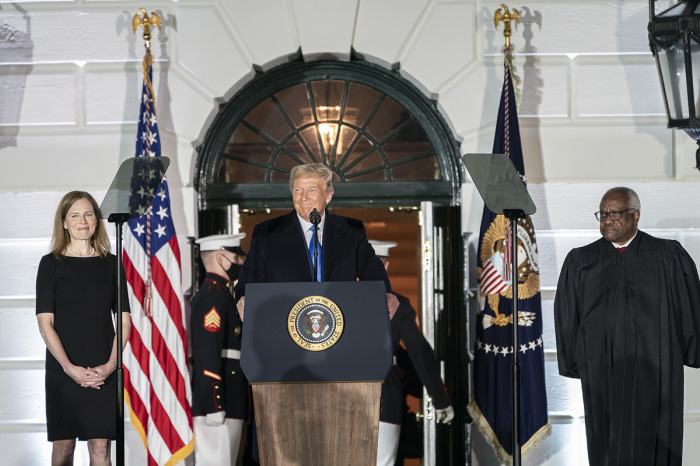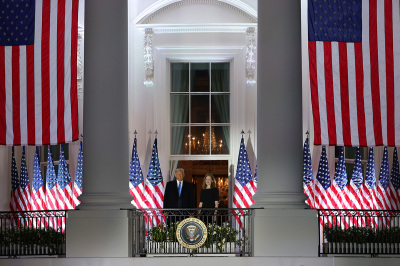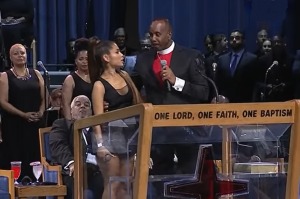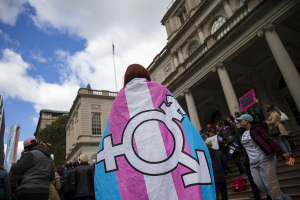Supreme Court Justice Amy Coney Barrett: 'I will do my job without any fear or favor'

Justice Clarence Thomas, the longest-serving justice on the U.S. Supreme Court, administered the constitutional oath to Associate Justice Amy Coney Barrett at a ceremony on the White House balcony Monday evening, following Senate confirmation, as a crowd looked on from the South Lawn.
After Thomas swore Barrett in, Barrett followed with a speech in which she vowed, “I will do my job without any fear or favor,” adding, “I love the Constitution and the democratic republic that it establishes, and I will devote myself to preserving it.”
The Senate's confirmation makes Barrett the fifth woman appointed to the court and the second woman nominated by a Republican president to serve on the court.
The vote comes four days after the Senate Judiciary Committee voted along party lines to advance Barrett’s nomination to the full Senate. All 12 Republicans on the Committee voted to advance her nomination while the Democrats on the committee did not show up for the committee's vote, instead putting pictures of people who benefited from the Affordable Care Act in their places.
In lieu of participating in the committee vote, Democrats on the Senate Judiciary Committee held a press conference. Throughout the confirmation process, Senate Democrats argued that Barrett’s presence on the court puts the 2010 healthcare law in jeopardy.

The vote in the full Senate Monday was equally partisan, with all but one of the 53 Senate Republicans voting in favor of her confirmation and all 47 Senate Democrats voting against it. Many of the Democrats promptly walked off the Senate floor after casting their votes against Barrett’s confirmation.
Sen. Susan Collins, R-Maine, who is facing a tough reelection fight, was the only Republican to vote against Barrett’s confirmation. Collins announced that she would vote against Barrett ahead of Monday’s vote, citing her decision as a “comment on the process of rushing through a nomination in such a short time before the election.”
Democrats steadfastly opposed Barrett’s confirmation, maintaining that a vote to confirm a new Supreme Court justice should wait until after the 2020 presidential election, which is now one week away. Democrats are furious at Senate Republicans for working to swiftly confirm Barrett after they refused to confirm President Barack Obama’s nominee to replace the late conservative jurist Antonin Scalia, who died in February 2016, nine months before the 2016 presidential election.
Barrett replaces the late Justice Ruth Bader Ginsburg, a progressive jurist appointed by former President Bill Clinton, who died Sept. 18. President Donald Trump announced his selection of Barrett, whom he appointed to the Seventh Circuit Court of Appeals in 2017, as Ginsburg’s replacement in a Rose Garden ceremony on Sept. 26.
With Barrett on the bench, the Supreme Court will consist of three justices appointed by Democratic presidents and six justices appointed by Republican presidents. Frustration over the prospect of an increasingly conservative Supreme Court has led to demands from far-left activists for Democrats to add more justices to the Supreme Court, called court-packing, if they gain control of the White House and the Senate following the Nov. 3 election.
Roberts, however, who was nominated by former President George W. Bush, has sided with leftists on the court in some cases. And Justices Neil Gorsuch and Brett Kavanaugh have similarly sided with the left on the court in cases.
Democratic presidential nominee Joe Biden and his running mate, Sen. Kamala Harris, D-Calif., have largely dodged questions on whether they would engage in court-packing up to this point. A poll from The New York Times and Siena College found that 58% of Americans oppose increasing the size of the Supreme Court.
Barrett is the third Supreme Court Justice appointed by Trump, making him the first president since Ronald Reagan to appoint more than two justices to the Supreme Court. At 48 years old, she is also the youngest Supreme Court justice.
Senators on both sides of the aisle took to social media to react to Barrett’s confirmation. Sen. Elizabeth Warren, D-Mass., described Monday as a “dark day” while Sen. Kirsten Gillibrand, D-N.Y., said she was “frustrated, and frankly, very angry.” Harris slammed the “illegitimate process” used to confirm Barrett and vowed, “We won’t forget this.”
I am frustrated, and frankly, very angry. It did not have to be this way. By rushing to confirm this Supreme Court nominee, Senate Republicans openly and unapologetically defied the will of the American people—all to further their extreme, conservative agenda.
— Kirsten Gillibrand (@SenGillibrand) October 27, 2020
Today Republicans denied the will of the American people by confirming a Supreme Court justice through an illegitimate process—all in their effort to gut the Affordable Care Act and strip health care from millions with pre-existing conditions.
— Kamala Harris (@KamalaHarris) October 27, 2020
We won’t forget this.
Sen. Lindsey Graham, R-S.C., the chairman of the Senate Judiciary Committee, excitedly proclaimed that “Justice Barrett is now a reality” and remarked that it was “a great day for conservative women and the American people.” He expressed excitement that there was “a constitutional conservative on the Supreme Court who understands the difference between being a judge and a politician.”
A constitutional conservative on the Supreme Court who understands the difference between being a judge and a politician.
— Lindsey Graham (@LindseyGrahamSC) October 27, 2020
Well done President @realdonaldtrump and @senatemajldr!
Chief Justice John Roberts will administer the judicial oath to Barrett on Tuesday. When that oath is taken, Barrett will begin her duties as an associate justice of the Supreme Court.





























